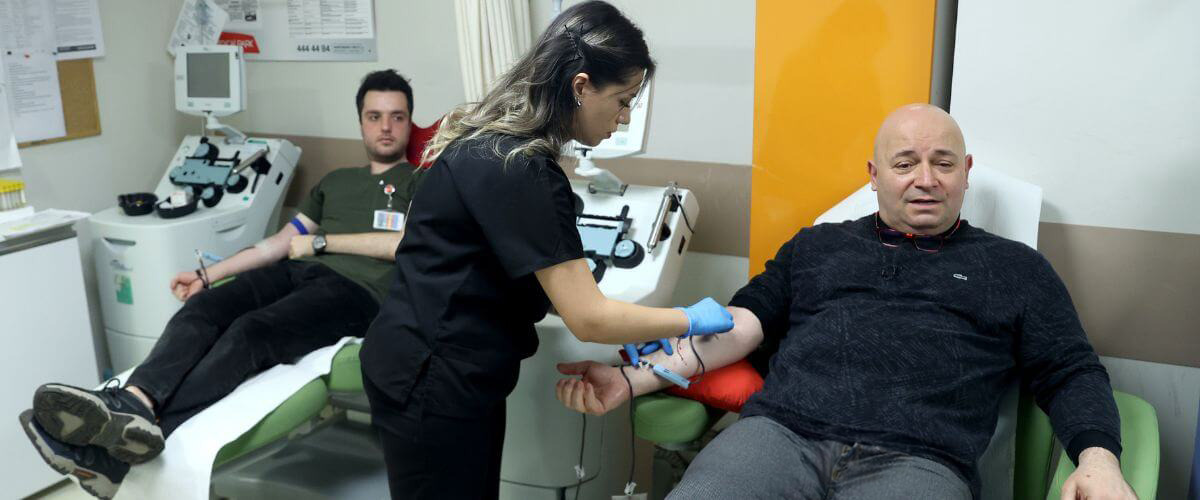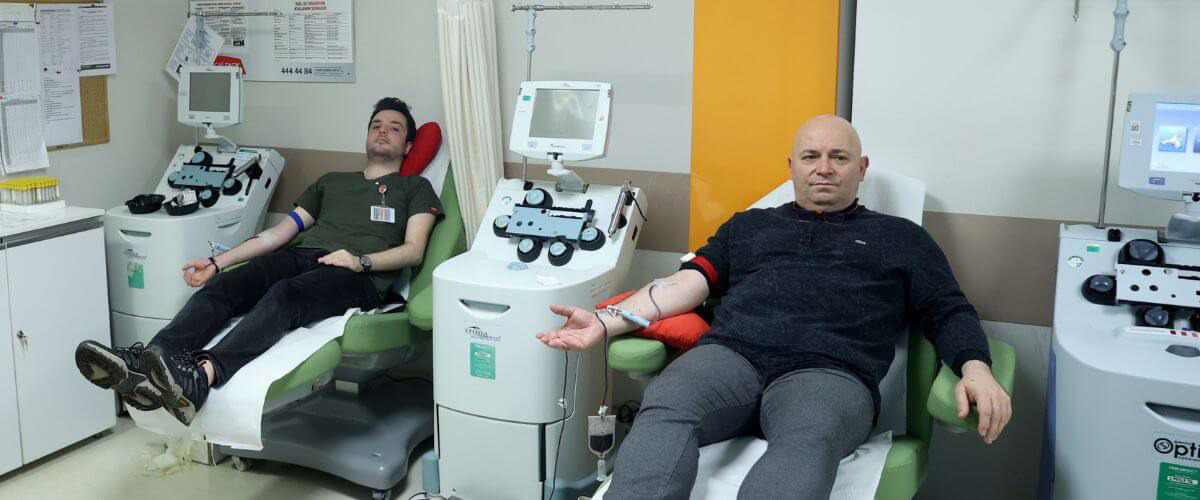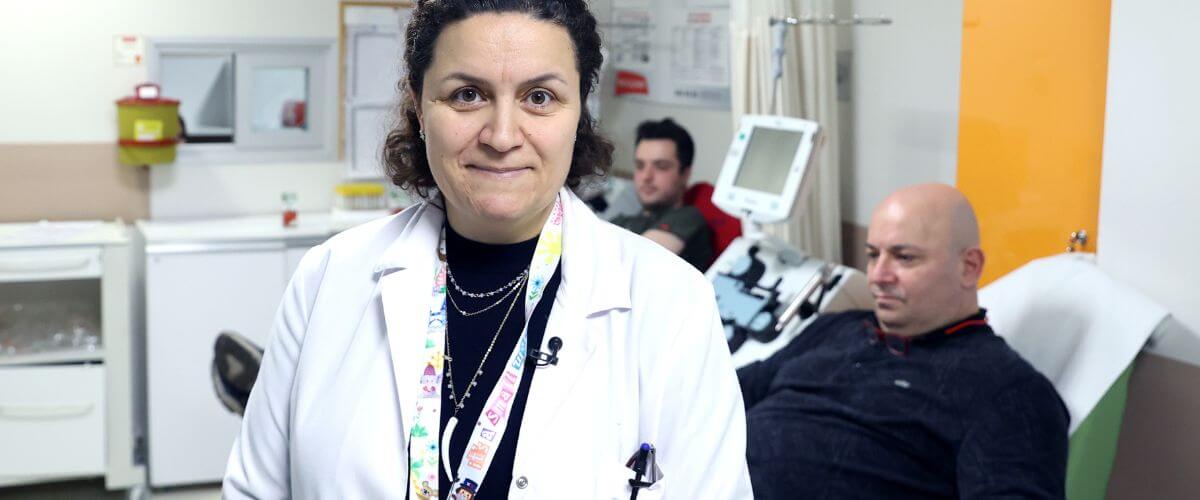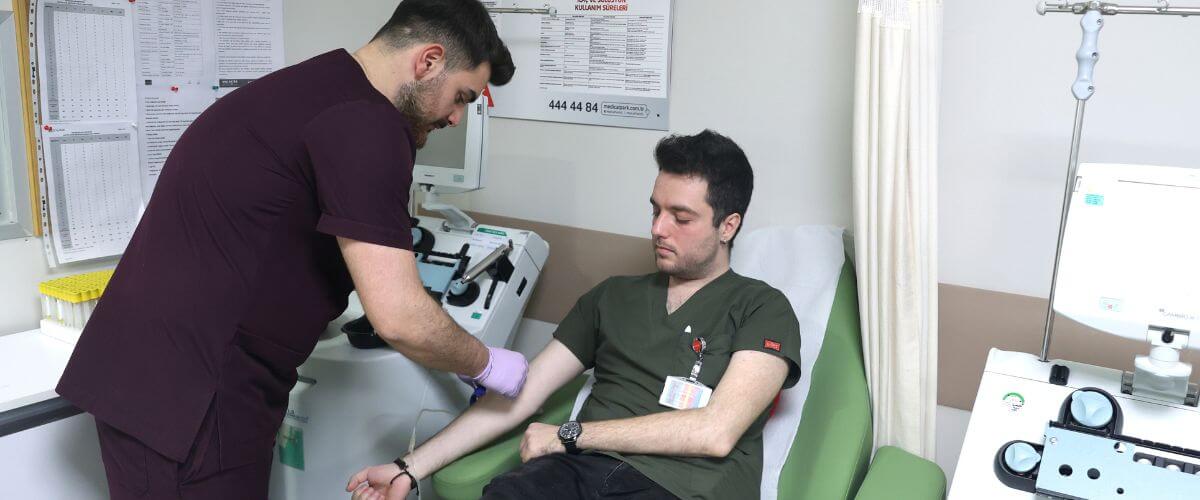Invitation to Blood Donation
Altınbaş University Faculty of Medicine Dean Prof. Dr. Tunç Fışgın donated blood to raise awareness on blood donation. Prof. Dr. Tunç Fışgın drew attention to the low number of female donors and invited especially women to donate blood.
Altınbaş University's Faculty of Medicine Dean, Prof. Dr. Tunç Fışgın, emphasized that Türkiye needs 6,000 to 8,000 units of blood every day, highlighting that blood donation rates decrease during Ramadan, leading to a decrease in blood stocks.
Accompanied by his staff, Prof. Dr. Tunç Fışgın donated blood at Altınbaş University's Faculty of Medicine Bahçelievler Medical Park Hospital. He pointed out the impact of decreasing stocks on the clinic, stating:
"Hospitals never stop, diseases and hospitals don't take a break. The healthcare sector continues to provide services 24/7. At this point, we sometimes face difficulties both in patients who need blood and in patients who are about to undergo surgery. Therefore, we want to increase the daily number of blood donations again and create awareness to reach normal daily numbers. I'm sure both the Red Crescent and all hospital blood centers are taking some precautions. Here at our hospital, we have started to extend the working hours of our blood bank until midnight to serve until 24.00. Volunteers, donors can come and donate blood."
Prof. Dr. Tunç Fışgın also highlighted the low participation of women in blood donation, stating that 80-85% of donors are male, while only 15-20% are female. He called on women to donate blood, saying:
"I want to address female donors, female citizens. Healthy individuals aged 18-65, not using medication, without serious illness, can apply to the blood banks of the Red Crescent in their region, the mobile centers of the Red Crescent, the transfusion centers of hospitals in their regions, and blood banks to make this donation. I believe everyone will show this sensitivity. Because blood is an indispensable product for the continuity of treatment services in hospitals. Of course, the state, hospitals, individuals do not face any problems in obtaining drugs and materials that are sold for money, but when we need blood and if someone hasn't donated blood, then unfortunately, the problem becomes unsolvable. Therefore, we want to draw attention to this point and create awareness."
Prof. Dr. Tunç Fışgın also mentioned that both Altınbaş University students and employees, as well as the personnel at Bahçelievler Medical Park Hospital, support blood donation, stating:
"We have created a campaign here for both Altınbaş University's students and employees and all employees of Bahçelievler Medical Park Hospital to donate blood to our blood bank by at least 3-4 people per day. I believe that during Ramadan, all hospitals have taken such precautions."
Dr. Başak Adaklı Aksoy, an Assistant Professor at the Department of Child Health at Altınbaş University's Faculty of Medicine, urged volunteers who want to donate blood to go to Turkish Red Crescent-affiliated or authorized centers. She highlighted the difficulties caused by the decrease in donors during Ramadan:
"To avoid blood shortages during Ramadan, we have adjusted working conditions and created blood donation programs that last until midnight after iftar to support our citizens as much as possible. Those who cannot donate blood during the week because they work can donate blood on weekends. We cannot accept blood donations from individuals weighing less than 50 kilograms."
Dr. Başak Adaklı Aksoy also explained the blood donation process:
"We provide an information form to the donors who come to donate blood. We ask them questions about diseases they may have experienced. As a result of these questions, we sometimes need to eliminate some donors for both their safety and the safety of our recipients. We are very careful to ensure both the donor's and the recipient's safety. After answering these questions, we also test the blood of our donors for compatibility. We look at blood counts, screen for infections, and if there are no problems with these, which we complete very quickly, we collect blood from our donors. Blood donation takes about 10-12 minutes. We are all with our donors during the blood donation process, we support them, and we take every precaution to prevent any reactions."
Dr. Başak Adaklı Aksoy clarified that they do not recommend blood donation during fasting, suggesting that donating blood after iftar is more appropriate during Ramadan.
İbrahim Ece, a 43-year-old from Eyüpsultan, who came to donate blood to a 7-year-old leukemia patient at Altınbaş University Bahçelievler Medical Park Hospital from Kahramanmaraş, shared his emotions:
"I came here through a friend's referral. He sent a message saying, 'There is a 7-year-old child with leukemia from Kahramanmaraş.' When I heard this, I came to the hospital as a citizen's duty and donated blood to him. People fast during Ramadan. There is not much demand for blood donation during Ramadan. We came to the hospital to help the child and donated blood. I advise everyone who can donate blood to support blood donation campaigns in hospitals. Because it is a vital situation, people are sick. Therefore, we need to be very careful about this."
İbrahim Ece, who donates blood 3-4 times a year, invited everyone to support Turkish Red Crescent's blood donation campaigns and to be sensitive. He believed that awareness should be increased, especially during Ramadan.
Stating that it is very different when an unknown child finds a cure, Ece added, "His happiness is very different. I don't know the child at all. I just came here through a friend's referral. And when it's a 7-year-old child with leukemia, you become a bit more emotional. Hopefully, he will recover."





